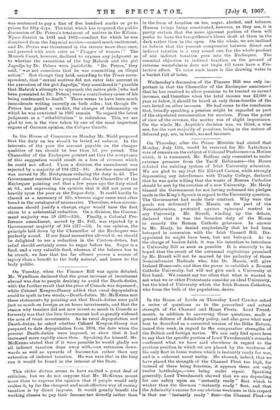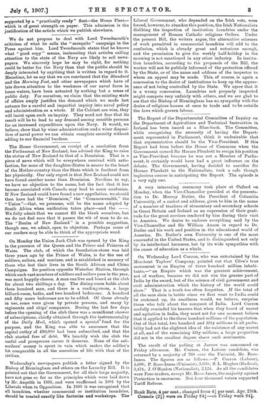In the House of Lords on Thursday Lord Cawdor asked
a series of questions as to the prescribed and actual strength of the Channel and Home Fleets. Lord Tweed- mouth, in addition to answering these questions, made a general defence of Admiralty policy, and also gave what may best be described as a corrected version of the Dilke Return, issued this week, in regard to irhe comparative strengths of the British and foreign navies. We can only find space here to say that the specific portion of Lord Tweedmouth's remarks confirmed what we have said elsewhere in regard to the perilous position in which we are placed by the weakness of the only fleet in home waters which is instantly ready for war, and is a coherent naval entity. He showed, indeed, that we have placed the strength of the Channel Fleet too high, for instead of there being fourteen, it appears there are only twelve battleships,—two being under repair. Speaking generally, Lord Tweedmouth showed that we are depending for our safety upon an "instantly ready" fleet which is weaker than the German "instantly ready" fleet, and that the Admiralty's excuse for our obvious weakness in this respect is that our instantly ready" fleet—the Channel Fleet—ia supported by a "practically ready" fleet—the Home Fleet— which is of great strength on paper. This admission is the justification of the article which we publish elsewhere.















































 Previous page
Previous page